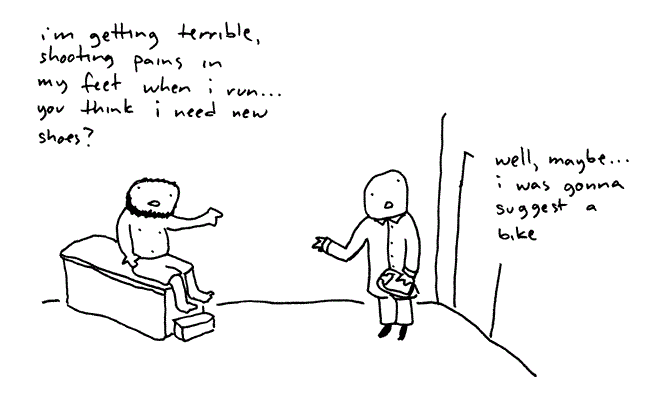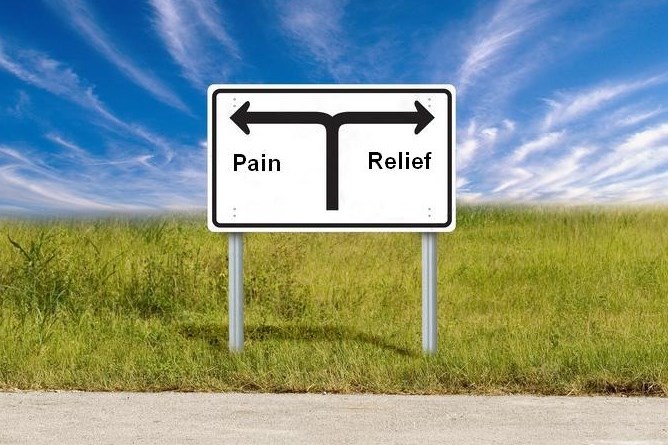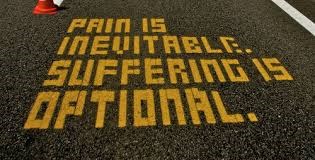If you are a runner, you’ve thought about pain. Experienced pain. And medicated pain (Vitamin I anyone? Or do you prefer wine?)
The longer I run, and the longer my runs, I'm trying to think of pain as something other than a red-hot demon.
As the International Association for the Study of Pain defines it: “Pain is always subjective, a sensation and unpleasant.” Beyond that, it gets complicated.
A runner’s relationship with the types of physical discomfort – whether joint pain, back pain, the mental pain of frustration or the bruising pain of injury allows us to know ourselves better.
Even when a runner is hurting, we continue. Sometimes recklessly. Is pain a gateway to something else?

I got thinking about this when reading Running and Philosophy, a Marathon for the Mind. In one essay, Chris Kelly talks about the instrumental value of things.
For me, there is instrumental value in cushioned runners, energy gels and a chaff-free running bra – all of which have value in context, but not on their own.
I don’t buy these, or several variations of these, as an end in themselves. I value them because they help me run longer more comfortably, which has the intrinsic value of good health, a sense of accomplishment and success. Those are valuable on their own.
We start running to lose weight, shed stress or get in shape. We endure the soreness for the greater reward down the road. We gut out the last kilometre or push ourselves in that last interval, not because we value that part of the workout for what it is, but for what it brings.
And that’s why in marathon training, you not only train your body, you train your mind. You run through pain because you know there is intrinsic value in the run itself. The pain is instrumental. As a runner, I don’t court pain for the pleasure of pain. I know the pain because it is part of the greater reward down the road.

I've run the Victoria half-marathon several times and have always felt relief where the route turns back towards downtown while the marathoners split off in a different direction to add 21 more kilometres. This year, I'll be among those heading in that other direction.
------
Would a marathon be as delicious, or delirious to finish, if it was easy? Of course not.
As Kelly says: “Running builds character because it is difficult, and because many of the virtues can neither be exhibited nor developed in the absence of hardship.”
So, I’m re-examining my relationship with pain, as I know I will be running many kilometres with that devil.
I tell myself that pain is a sensation; it doesn’t have to be bad. It depends how it is perceived. Pain generally tells us that there is something wrong – a broken bone or a damaged organ – it is the damage that is bad, not the message of pain.
The pain and soreness from burning thighs after a hard workout is actually good news. It means my muscles will be stronger after rebuilding the micro tears.
I am practicing in my head to have a friendly conversation with the pain that will inevitably accompany the latter stages of the marathon. It’s OK, I’ll say, this too shall pass.

On the eve of the Victoria GoodLife Marathon on Oct. 11, I admit to being anxious because I am not as well prepared as last year when I had diligently trained over several months for my first marathon in New York.
In fact, I still wonder what the heck am I doing? It’s painful yet pleasurable to consider.
------
Older posts


